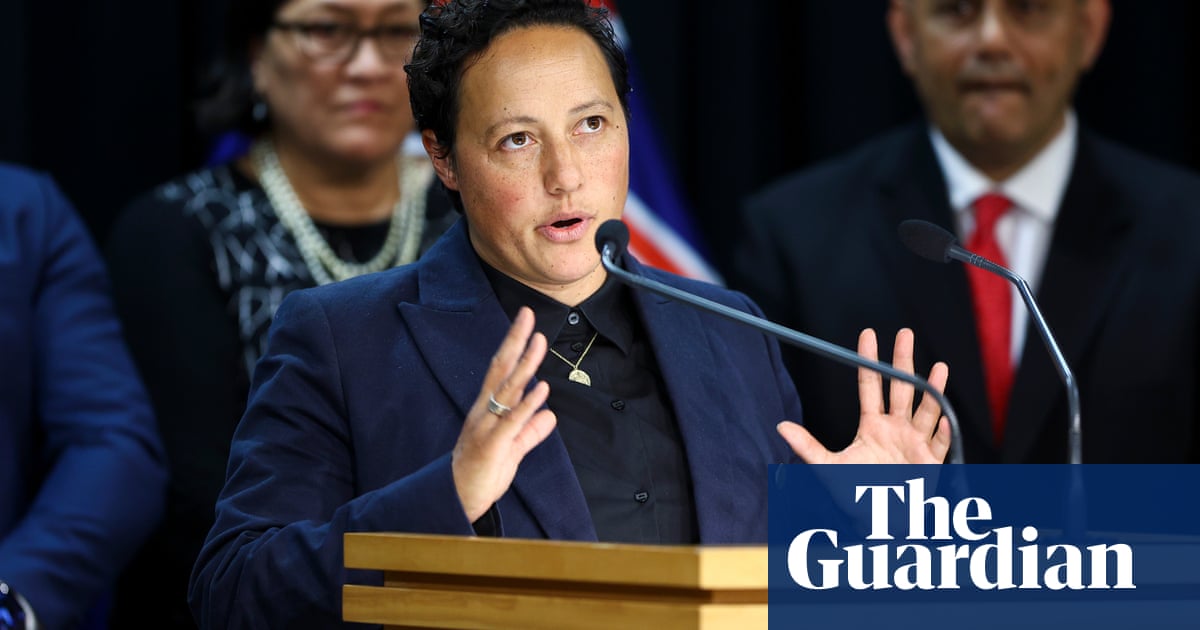New Zealand’s justice minister resigned on Monday after police charged her with reckless driving and resisting arrest after a car crash.
Kiri Allan was involved in the crash shortly after 9pm on Sunday in Wellington, said prime minister Chris Hipkins, and she was detained at the central police station before being released four hours later.
Police have charged her with careless use of a motor vehicle, and refusing to accompany a police officer, and summonsed to appear in court at a later date. Allan was handed an infringement notice for excess breath alcohol between 250 and 400mcg.
The incident involving Allan was the latest in a series of missteps and scandals involving government ministers less than three months out from national elections. Polls indicate the conservative opposition has pulled level or moved slightly ahead of the incumbent liberals in what promises to be a close race.
Once considered a rising star of the Labour party, Allan had recently taken time off for her mental health after being involved in a public split with her partner and accusations of poor working relationships with staff.
Hipkins said he spoke to Allan on Monday morning and told her that he thought she wasn’t in a fit state to remain a minister and that it was untenable for a justice minister to be charged with criminal offending. She agreed and resigned her ministerial roles, Hipkins said.
For now, Allan remains a member of parliament.
“While her alleged actions are inexcusable, I’ve been advised she was experiencing extreme emotional distress at the time of the incident,” Hipkins said. “Her recent personal struggles with mental health have been well documented and it appears some of those issues came to a head yesterday.”
Allan said she was sorry for her actions and was heading home to consider her future in politics. “Over recent weeks I’ve faced a number of personal difficulties. I took time off to address those, and believed I was OK to juggle those challenges with the pressure of being a minister,” she said in a statement. “My actions yesterday show I wasn’t OK, and I’ve let myself and my colleagues down.”
Last month, transport and immigration minister Michael Wood resigned after failing to disclose a possible conflict of interest with stock he owned. In March, police minister Stuart Nash was sacked after it came to light he had given confidential information to donors. In May, customs minister Meka Whaitiri was fired after switching allegiance to another political party.
Hipkins took over as prime minister in January after his predecessor Jacinda Ardern stepped down. New Zealand’s elections will be held on 14 October.



Forgive my misunderstanding but it really does look like you were arguing Labour are not responsible for the continued decline:
I’m glad to read that we agree that they are, at least in part, responsible.
You’re right: a low dollar does help exporters. China keeps their currency artificially low for this reason. There are economic benefits, but I’m not sure the benefit is worth the cost. Especially for the average voter. I’ve heard both National and Labour defend a weak NZD, but I’ve never seen any policies aiming to keep NZDUSD at 60-70c. Do you have a link?
Sure, here’s an example of it being clearly stated: New Zealand dollar catches breath.
Nothing controversial about this, he was stating the obvious. Notice in that same article there is talk of the RBNZ intervening if it gets too high.
And, it’s not a political stance it’s just practical economics. The RBNZ is non-political. We saw this same behaviour under Labour before the GFC when we had a high dollar and a high OCR.
My google fu isn’t great right now so I’m going to leave it there, but you will probably notice it yourself, going forward.
Thanks! To extend an olive branch, NZ’s heavy reliance on primary agricultural exports does pose systemic economic risk with a very high dollar. So I wouldn’t be surprised if this were the target of those in charge. They just rarely put it into their policy documents. Probably because it’s very unpopular with voters.
Sure, you’re probably right. To be honest I don’t think most voters even understand what a running a monetarist economy entails.
The RBNZ role is also challenging because the NZD is an unusually highly-traded currency.
Yeah NZDUSD is a favourite for forex traders.